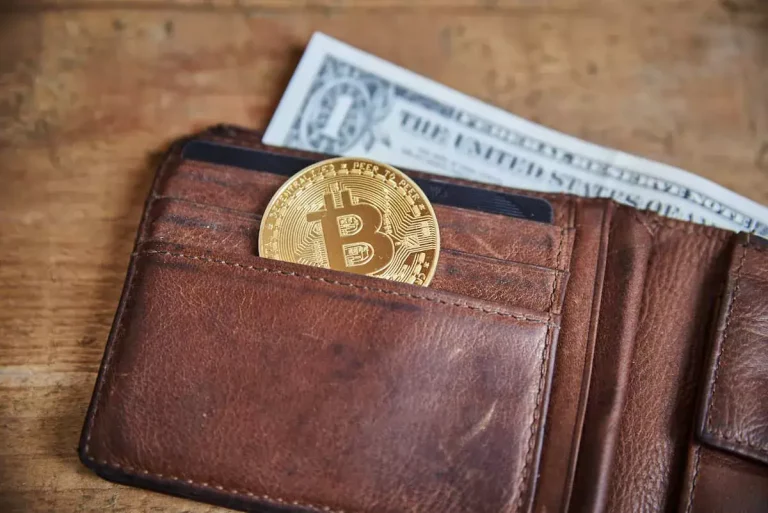What is cryptocurrency and how does it work?
Content
Cryptocurrency wallets are software programs that store public and private keys and enable users to send and receive digital currency and monitor their balance. With the help of a cryptographic technique, private keys are encrypted to create wallet addresses, which can be likened to bank account numbers. In essence, you need your private key to digitally sign transactions. This is essentially like broadcasting to everyone in the network, “I confirm I am sending this https://www.xcritical.com/ amount of X coin to this person.” In contrast, wallet addresses indicate the destination of transactions. Unlike government-backed money, the value of virtual currencies is driven entirely by supply and demand. This can create wild swings that produce significant gains for investors or big losses.
Is there any other context you can provide?
Consider how many of these risks you are willing to take on before you purchase any cryptocurrency. Remember that it’s not insured by the Federal Deposit Insurance Corporation (FDIC) or the Securities what is a token Investor Protection Corporation (SIPC), meaning you should only buy crypto with an amount you’re willing to lose. In addition to significant and unexpected price swings, the laws surrounding cryptocurrencies are constantly evolving and the future regulatory environment is currently uncertain. Of course we now know that this breaks one of our golden rules of sound money – scarcity. The new system instead requires us to simply trust our governments to decide how much money should be created and for what purpose. This is known as Fiat Money, which literally means – this is money because the government says its money.
Should You Invest in Cryptocurrency?
Cryptocurrency has introduced a new way to think about money and financial transactions. Some believe it could eventually replace traditional financial systems, while others see it as a complement to existing systems. Still, cryptocurrencies have already impacted finance and technology, and their influence will likely continue to grow. Cryptocurrencies can operate globally, 24/7, and independently of intermediaries such as banks and payment processors. For many cryptocurrencies, another AML Risk Assessments important element is the total number of coins that can ever exist is often fixed. For instance, there will be only 21 million bitcoins created, of which more than 18 million are already in circulation.
- Platforms that buy and sell bitcoin may be unregulated, can be hacked, may stop operating, and some have failed.
- You’ll have to check to see if your exchange supports the right crypto pairing you need to make a purchase.
- The range of them is astonishing, and literally thousands of currencies popped up in the last few years, especially after Bitcoin soared into mainstream popularity in 2017.
- While miners consume and pay for energy to run their rigs, it also creates significant pollution and waste.
- Hundreds of other cryptocurrencies have followed Bitcoin into the market, they are called altcoins.
- Once validated and confirmed, cryptocurrency transactions are permanently recorded in the blockchain database.
Why You Can Trust Finance Strategists
We might be able to trust banks, governments, and other third parties most of the time, but we can’t trust them all the time. Thirty years from now, people won’t need to ask, “what is a cryptocurrency? It will be a normal part of their everyday lives, just like the internet is today.

Once a transaction is added to the blockchain, it’s virtually impossible to alter or delete it. Cryptocurrencies allow users to have total control over their assets. Their decentralized architecture eliminates the need for a central authority. This allows for greater autonomy, as well as less vulnerability to manipulation or control by a single entity. Because these applications depend on the infrastructure of blockchains, transactions involving tokens come with an added fee settled in the native cryptocurrency of the blockchain in question. Diversification is key to any good investment strategy, and this holds true when you are investing in cryptocurrency.
So far in this guide, we have explained why cryptocurrencies are secure and why they are censorship-resistant. A blockchain is exactly what it sounds like – a virtual chain of blocks each containing a batch of transactions and other data. Once each block is added to the chain, it becomes immutable, meaning the data stored inside it cannot be changed or removed.
These are applications similar to the ones you might find on your smartphone, but instead of being operated by a single company, they run completely autonomously. Think of it like a free Uber app where taxi drivers and customers can connect together without having to pay the middleman company a cut of profits. Cryptocurrency is a relatively new type of money that operates in a completely different way than the traditional currency we all use every day. The most basic difference is that it’s exclusively a virtual currency, meaning there are no physical cryptocurrency coins or notes you can keep in your back pocket. While there are different kinds of wallets, each has its benefits, technical requirements, and security. As with exchanges, you should investigate your storage choices before investing.
And because permissionless blockchains are open-source, anyone can start deploying code on top of a blockchain to create their own DApps. It was created in 2009 by an individual or group under the pseudonym Satoshi Nakamoto. Since then, thousands of cryptocurrencies have emerged, each with unique characteristics and purposes. Tokens are digital assets issued by decentralized applications based on blockchains.
When money flows freely in an economy during a boom, no problems may arise. But when times get tough, consumers and businesses often hoard money to provide a buffer against instability and job loss. By hoarding, they slow the movement of money through the economy, potentially leading to a destructive deflationary spiral. At its worst form, consumers end up not spending, because goods are expected to be cheaper tomorrow, plunging the economy into crisis. Those who own crypto via Bitcoin futures can readily sell their positions in the market when it’s open, though you’ll want to look for the best brokers for crypto if you’re trading regularly. But you may also own crypto through a payment app such as PayPal or CashApp, and you can easily trade it for dollars.
The FBI has repeatedly demonstrated in cases of crypto crime, it is not impossible to identify the names behind public addresses. Cryptocurrencies are carriers of value on the Internet as opposed to being a purely financial instrument. To learn more about Bitcoin and Ethereum, see our Ethereum VS Bitcoin guide. The transaction above is only between Peter and Paul, but it needs them both to trust a third party for it to work. Between late 2021 and mid 2022 alone, for example, its peaks were as high as almost $70,000 in November and as low as just under $18,000 the following September. This flexibility can be particularly helpful in arranging international donations or in helping refugees retain easy access to funds.

The network then includes the transaction to reflect the updated balance in both the sender’s and recipient’s address. A blockchain is a distributed ledger that records all transactions across a network of computers. Each transaction is grouped into a ‘block’ and linked to the previous block, forming a ‘chain’. This structure ensures the integrity and chronological order of transactions. Ethereum is an open-source, decentralized computing platform network. All cryptocurrency transactions are accessible to the public, as blockchains act as public ledgers.
But their emergence marks a seminal evolution for cryptocurrencies from being an arcane topic of discussion and research at universities to being actually implemented in society. Another notable contributor to the cryptocurrency canon is Nick Szabo, who developed the idea for Bitgold in a series of blog posts. It utilized the concept of “blind signature” from cryptography to enable a digital signature without divulging the coin’s actual details. In fact, cryptocurrencies have failed to gain mainstream traction even as their use in crime has surged. A trustless system of stakeholders distributed across the world minimizes the threat of collusion and minimizes the risk of a default from a single point-of-failure across multiple stakeholders. As an example, consider the 2008 financial crisis which was a consequence of the centralization paradigm.
So it is imperative to keep the mnemonic phrase in a secure location, and to not store a digital copy of it anywhere. A paper wallet is a physical location where the private and public keys are written down or printed. In many ways, this is safer than keeping funds in a hot wallet, since remote hackers have no way of accessing these keys, which are kept safe from phishing attacks. On the other hand, it opens up the potential risk of the piece of paper getting destroyed or lost, which may result in irrecoverable funds. The first advantage of cryptocurrencies is that they enable seamless transfer of digital money.
Its native cryptocurrency, Ether (ETH), is used to power transactions and computational services on the network, making Ethereum a cornerstone of the decentralised finance (DeFi) ecosystem and beyond. Traditional financial (TradFi) systems rely on centralised entities like banks to validate and process transactions. In contrast, cryptocurrencies use decentralised networks of computers (nodes) to achieve consensus on transaction validity.